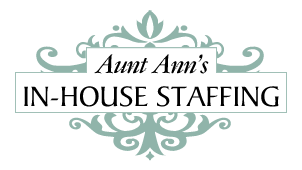Preparing a nanny contract. Setting up payroll and tax withholdings. Making sure your nanny is prepared to care for your children. All of these tasks are at the top of your family’s task list when you hire an in-home caregiver to look after your children. Getting worker’s compensation insurance? That may not be as obvious a “to do” but a lack of coverage can be a critical and costly mistake for families.
Our friends at GTM explain why workers’ compensation is important for househould employers.

What is worker compensation?
Let’s start with an understanding of workers’ compensation.
This insurance coverage provides medical and wage benefits for employees – including household workers like nannies, senior caregivers, and housekeepers – who are hurt or become ill on the job.
Workers’ compensation can help cover your employee’s medical bills and a portion of their lost wages. It also protects you, as the employer, from liability.
Is workers’ compensation required for household employers?
Coverage is typically required in most industries. However, worker’s compensation insurance requirements for household employment vary by state and may depend on the number of hours your employee works and how many workers you employ.
In general, coverage is required for all household employers in Alaska, California, Connecticut, Delaware, District of Columbia, Hawaii, Iowa, Kansas, Maryland, Massachusetts, Minnesota, New Hampshire, New Jersey, Ohio, Oklahoma, and South Dakota.
Workers’ compensation is required only for families with full-time household help in Colorado, Illinois, Kentucky, Michigan, New York, Utah, and Washington.
State-by-State Workers’ Compensation Requirements
What if my state doesn’t require workers’ compensation insurance?
If obtaining a workers’ compensation policy is not required in your state, voluntary coverage may still be a good idea. That way your nanny gets financial protection if they are hurt on the job. It can give both you and your employee peace of mind. In some states, a policy may only cost a few hundred dollars a year.
Why isn’t my employee covered by a homeowner’s or renter’s inurance policy?
In just about every state, workers’ compensation needs to be separate from any homeowners’ or renter’s insurance policy.
The exceptions are New Jersey and California. In New Jersey, you can add a rider for workers’ compensation to your homeowner’s policy which is substantially cheaper than a stand-alone policy. In California, it is required to have workers’ compensation on your homeowner’s policy if you have a household employee.
Also, there is a difference between someone visiting your home slipping and falling or even a worker like a plumber or an electrician getting injured while working at your house and having someone employed in your home.
Never assume that your employee is covered under your homeowner’s or renter’s insurance.
What’s the difference between workers’ compensation and disability insurance?
In five states (California, Hawaii, New Jersey, New York, and Rhode Island), household employers are required to make deductions from their employee’s pay for disability insurance. These programs provide short-term benefits to employees who are unable to work due to a non-work-related illness or injury. Workers’ compensation provides benefits for work-related illnesses and injuries.
In some states and cities, your employee may also be eligible for paid medical and/or family leave. Again, these programs are different from workers’ compensation insurance.
Why is workers’ compensation important?
Besides coverage being the law in many states, here are four reasons why workers’ compensation is important in household employment.
- Your nanny is protected. A nanny can receive financial help with medical expenses and lost wages under workers’ compensation if they are injured or get sick on the job. You never know when an injury might occur, whether it’s around the house, playing with the kids in the park, or even walking the dog. Unforeseen risks are always in play.
- Your family is protected. If your employee is hurt on the job and you lack the required coverage, you are now open to a workers’ compensation claim and a potential lawsuit to recover lost wages and medical expenses. Even without the threat of a claim or litigation, you may feel compelled to help your nanny financially and that could mean thousands of dollars out of your pocket.
- You avoid major fines and penalities. Non-compliance with your state’s workers’ comp requirements can be one of the biggest financial mistakes you can make as a household employer. A single work-related accident could leave you liable for tens of thousands of dollars in medical bills, lost wages, and state fines.
- You maintain a positive relationship with your nanny. With a workers’ compensation policy in place, your nanny can feel assured that they will be compensated for their medical costs and lost wages. And you will maintain a good relationship with your employee. If you don’t have coverage and they need to file a workers’ compensation claim, that will most certainly put a strain on their employment if not end their time with your family. Now, on top of the financial hit your family will take, you need to find alternate childcare while you look for a new nanny.
We recommend GTM Payroll Services for all of your household payroll, tax, and compliance needs.
GTM Payroll Services relieves the administrative hassles of household payroll for domestic employers by proviing a one-stop shop for payroll, tax filings, compliance and insurance. No risk. No hassles. No worries. If you or your employer have any questions about domestic employment, call (1-800-929-9213) or email GTM for a free, no obligation consultation

